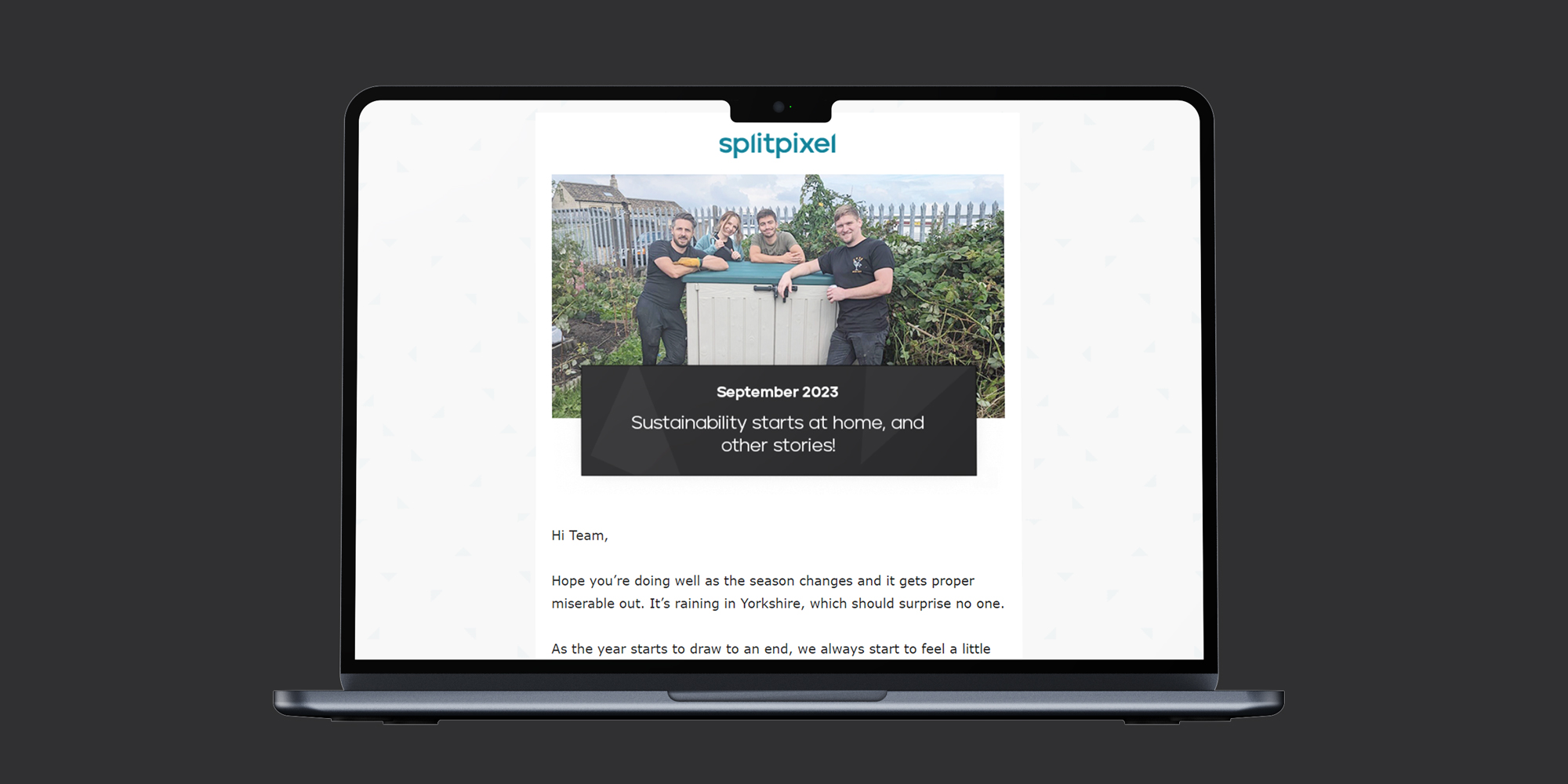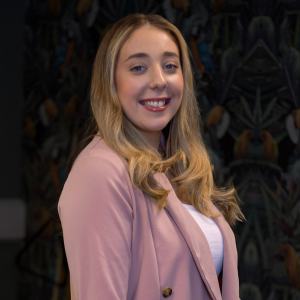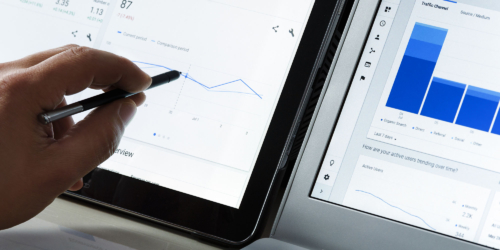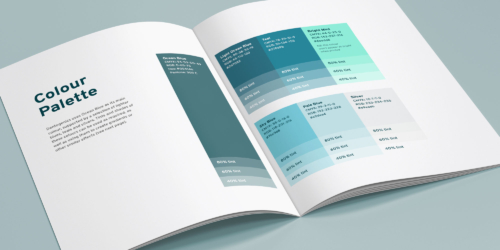We’ve been thinking about our power to make change, what steps we can take to avoid greenwashing, and how we can make meaningful changes for good.
Consumers are putting increasing pressure on businesses to be greener and more ethical. Sustainability has become the big buzzword across almost all sectors – especially in digital marketing. But, not only are consumers ramping up the pressure on companies to be seen to be sustainable, they’re asking for the kind of transparency that exposes where companies are just talking the talk when they should be walking the walk.
What is greenwashing?
Greenwashing is where a business makes their products, services, or brand appear to be sustainable when, in reality, they’re not actually doing anything meaningful to reduce their impact on the planet.
It’s essentially environmental virtue signalling.
An example would be large fast fashion corporations, such as H&M, marketing a line of clothing as more ethical or sustainable despite producing billions of garments every year that end up in landfill.
![]()
H&M launched their ‘Conscious Collection’ in the 2010s claiming that the pieces in this collection were sustainable, many of them made from recycled materials. They knew that many consumers would take this at face value and continue to buy clothes from them (maybe even go so far as to consider them an ethical company).
But it didn’t take much digging to show that H&M weren’t being particularly transparent about how ‘conscious’ this line actually is. They’re still producing tons of waste, they’re still underpaying their garment workers, they’re still using unsustainable materials (even if they are partially recycled).
Why is this bad?
The bottom line is that greenwashing is bad for the environment and bad for business. Just claiming your brand is eco-friendly isn’t going to cut the mustard anymore as consumers are becoming more aware of where businesses may be taking shortcuts to appear ethical.
When consumers become savvy to a brand’s greenwashing ways, it can damage the reputation of the company as well as any high-profile brand advocates associated with them – much as it did in the case of H&M when they named Game of Thrones actor Maisie Williams as their Sustainability Ambassador in Spring 2021.
Greenwashing is particularly pernicious because it can be alluring for your average joe who wants to do their bit for the environment. Being drawn in by the buzzwords ‘ethical’, ‘green’, and ‘eco’ – these consumers make purchases in good faith. It’s not until they look under the hood that they realise they’re essentially being lied to.
![]()
This is a big problem because in order to make a real difference, we all have to try and make meaningful and effective changes, wherever we have the power to do so. If we’re being lied to about the impact of our choices, we can’t make better ones and we won’t change anything.
We think that if you’re going to present yourself as a sustainable business, you might as well do something meaningful. We think sustainability is so important in tackling climate change and, while we’re no massive global corporation like H&M, we think it’s really important to do what we can as a little digital agency in West Yorkshire!
How we’re trying to do better
One essential step we have taken is working towards switching to sustainable hosting providers whenever possible and offering this as an option to all clients. The cloud environment we use runs on 100% renewable energy, diverts 90% of its waste from landfills and has a Power Usage Effectiveness (PUE) of 1.10 – typically twice as efficient as enterprise data centres. We also offset our Carbon Footprint every month to cover our business estimated CO2 plus the energy consumption used by the client websites we host.
Knowing that carbon offsetting isn’t quite enough on it’s own, another important way we can leverage what little power we have is where we invest our money. So, in 2021 we went in search of a pension scheme that isn’t funding fossil fuels or deforestation. We’ve now moved to a Net Zero pension after looking into ethically and socially responsible financial solutions for the business. This is so important because you can make lots of changes in the office – like switching to paperless invoices, for example – but it’s your money (and what it’s paying for without you realising it) that makes the real material differences in the world.
We also tried to stay mindful of the greenwashing red flags while we were shopping for the right pension scheme and chose one that actually made ethical investments that aligned with our values. Just saying the pension was ‘eco’ or ‘green’ wasn’t enough for us – we wanted to do our due diligence and dig a little deeper.
![]()
In acknowledging the impact that animal agriculture and fishing has on the environment, we think it’s important to think about what we’re consuming, too. Some of our team eat almost entirely plant-based diets and many are making changes to heavily reduce their consumption of meat and other animal products. We also make monthly donations to Sea Shepherd – an amazing organisation protecting marine life around the world and on a mission to protect our seas from overfishing – as well as Rainforest Trust UK and ClientEarth (who use the law to fight climate change, tackle pollution, defend wildlife, and protect the planet).
Not to forget the ways we’re trying to be more sustainable on our own doorstep – we’ve been thinking about what we can do in our local community. That’s why we’ve volunteered to plant trees and help create wild, biodiverse outdoor areas right here in Huddersfield – such as developing a forest area at our local infant school. While planting a few trees is a drop in the water in comparison to other sustainability efforts, we genuinely find the conservation of our local green areas to be extremely important for our mental health and love the message it sends to others in our local community about the value of our environment. This is why we’re also working with Growing Focal, a local community group who grow fresh produce for those who need it.
Looking ahead
We think the most important thing to consider when trying to be more sustainable is being critical of the impact of the changes we’ve made, being honest with ourselves about what we can do better, and not shying away from the changes that make the biggest difference just because they’re the biggest faff.
On the one hand, it’s important to remember that every step can make some difference and swapping out plastic bags and water bottles for organic cotton totes and reusable flasks are positive changes to make. On the other hand, we need to think about making swaps and changes that have the biggest impact wherever we have the power to do so.
![]()
We’re keen to use our skills as web developers, website designers, digital marketers, and content creators to work with organisations that share our passion for meaningful sustainability. So, if you’re part of an organisation that hates greenwashing as much as we do, we’d really love to work with you!
It can be easy to despair in the face of climate catastrophe, but we know that we have the power to make a small change and we know it’s worth it.
Continue reading...
Have you noticed a drop in organic clicks, despite increasing your SEO efforts? You’re not alone! Search behaviours are changing, and they’re doing so rapidly.
Written by Ash Beardsall
Web Design Brand Guidelines – and what to do if you’re worried about web accessibility
Since 2008 I’ve used countless brand guideline documents when designing websites. Back when I started, there wasn’t much of a conversation about accessibility – the overall aesthetic was all people were worried about.
Written by Rob Marshall
Sign up to our newsletter

Lets work together
Contact us

